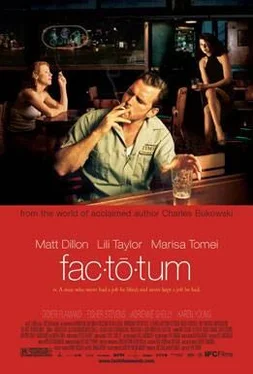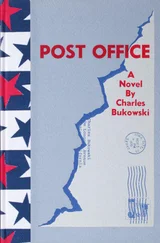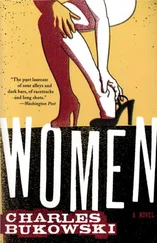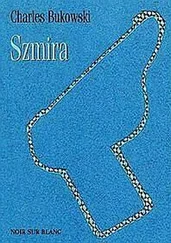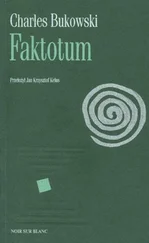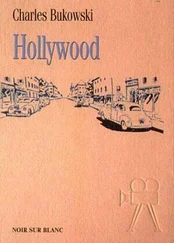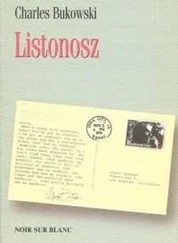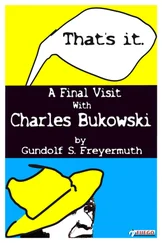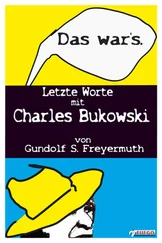Charles Bukowski - Factotum
Здесь есть возможность читать онлайн «Charles Bukowski - Factotum» весь текст электронной книги совершенно бесплатно (целиком полную версию без сокращений). В некоторых случаях можно слушать аудио, скачать через торрент в формате fb2 и присутствует краткое содержание. Жанр: Современная проза, на английском языке. Описание произведения, (предисловие) а так же отзывы посетителей доступны на портале библиотеки ЛибКат.
- Название:Factotum
- Автор:
- Жанр:
- Год:неизвестен
- ISBN:нет данных
- Рейтинг книги:4 / 5. Голосов: 2
-
Избранное:Добавить в избранное
- Отзывы:
-
Ваша оценка:
- 80
- 1
- 2
- 3
- 4
- 5
Factotum: краткое содержание, описание и аннотация
Предлагаем к чтению аннотацию, описание, краткое содержание или предисловие (зависит от того, что написал сам автор книги «Factotum»). Если вы не нашли необходимую информацию о книге — напишите в комментариях, мы постараемся отыскать её.
Factotum — читать онлайн бесплатно полную книгу (весь текст) целиком
Ниже представлен текст книги, разбитый по страницам. Система сохранения места последней прочитанной страницы, позволяет с удобством читать онлайн бесплатно книгу «Factotum», без необходимости каждый раз заново искать на чём Вы остановились. Поставьте закладку, и сможете в любой момент перейти на страницу, на которой закончили чтение.
Интервал:
Закладка:

Charles Bukowski
Factotum
First Published in 1975
For John & Barbara Martin
The novelist does not long to see the lion eat grass. He realizes that one and the same God created the wolf and the lamb, then smiled, "seeing that his work was good."
– Andre Gide
1
I arrived in New Orleans in the rain at 5 o'clock in the morning. I sat around in the bus station for a while but the people depressed me so I took my suitcase and went out in the rain and began walking. I didn't know where the rooming houses were, where the poor section was.
I had a cardboard suitcase that was falling apart. It had once been black but the black coating had peeled off and yellow cardboard was exposed. I had tried to solve that by putting black shoepolish over the exposed cardboard. As I walked along in the rain the shoepolish on the suitcase ran and unwittingly I rubbed black streaks on both legs of my pants as I switched the suitcase from hand to hand.
Well, it was a new town. Maybe I'd get lucky.
The rain stopped and the sun came out. I was in the black district. I walked along slowly.
_"Hey, poor white trash!"_
I put my suitcase down. A high yellow was sitting on the porch steps swinging her legs. She did look good.
_"Hello, poor white trash!"_
I didn't say anything. I just stood there looking at her.
_"How'd you like a piece of ass, poor white trash?"_ She laughed at me. She had her legs crossed high and she kicked her feet; she had nice legs, high heels, and she kicked her legs and laughed. I picked up my suitcase and began to approach her up the walk. As I did I noticed a side curtain on a window to my left move just a bit. I saw a black man's face. He looked like Jersey Joe Wolcott. I backed down the pathway to the sidewalk. Her laughter followed me down the street.
2
I was in a room on the second floor across from a bar. The bar was called The Gangplank Cafe. From my room I could see through the open bar doors and into the bar. There were some rough faces in that bar, some interesting faces. I stayed in my room at night and drank wine and looked at the faces in the bar while my money ran out. In the daytime I took long slow walks. I sat for hours staring at pigeons. I only ate one meal a day so my money would last longer. I found a dirty cafe with a dirty proprietor, but you got a big breakfast-hotcakes, grits, sausage-for very little.
3
I went out on the street, as usual, one day and strolled along. I felt happy and relaxed. The sun was just right. Mellow. There was peace in the air. As I approached the center of the block there was a man standing outside the doorway of a shop. I walked past.
"Hey, BUDDY!"
I stopped and turned.
"You want a job?"
I walked back to where he stood. Over his shoulder I could see a large dark room. There was a long table with men and women standing on both sides of it. They had hammers with which they pounded objects in front of them. In the gloom the objects appeared to be clams. They smelled like clams. I turned and continued walking down the street.
I remembered how my father used to come home each night and talk about his job to my mother. The job talk began when he entered the door, continued over the dinner table, and ended in the bedroom where my father would scream "_Lights Out!_" at 8 p.m., so he could get his rest and his full strength for the job the next day. There was no other subject except the job.
Down by the corner I was stopped by another man.
"Listen, my friend…" he began.
"Yes?" I asked.
"Listen, I'm a veteran of World War I. I put my life on the line for this country but nobody will hire me, nobody will give me a job. They don't appreciate what I did. I'm hungry, give me some help…"
"I'm not working."
"You're not working?"
"That's right."
I walked away. I crossed the street to the other side.
_"You're lying!"_ he screamed. _"You're working. You've got a job!"_
A few days later I was looking for one.
4
He was a man behind the desk with a hearing aid and the wire ran down along the side of his face and into his shirt where he hid the battery. The office was dark and comfortable. He was dressed in a worn brown suit with a wrinkled white shirt and a necktie frayed at the edges. His name was Heathercliff.
I had seen the ad in the local paper and the place was near my room.
_Need ambitious young man with an eye to the future. Exper. not necessary. Begin in delivery room and work up._
I waited outside with five or six young men, all of them trying to look ambitious. We had filled out our employment applications and now we waited. I was the last to be called.
"Mr. Chinaski, what made you leave the railroad yards?"
"Well, I don't see any future in the railroads."
"They have good unions, medical care, retirement."
"At my age, retirement might almost be considered superfluous."
"Why did you come to New Orleans?"
"I had too many friends in Los Angeles, friends I felt were hindering my career. I wanted to go where I could concentrate unmolested."
"How do we know that you'll remain with us any length of time?"
"I might not."
"Why?"
"Your ad stated that there was a future for an ambitious man. If there isn't any future here then I must leave."
"Why haven't you shaved your face? Did you lose a bet?"
"Not yet."
"Not yet?"
"No; I bet my landlord that I could land a job in one day even with this beard."
"All right, we'll let you know."
"I don't have a phone."
"That's all right, Mr. Chinaski."
I left and went back to my room. I went down the dirty hall and took a hot bath. Then I put my clothes back on and went out and got a bottle of wine. I came back to the room and sat by the window drinking and watching the people in the bar, watching the people walk by. I drank slowly and began to think again of getting a gun and doing it quickly-without all the thought and talk. A matter of guts. I wondered about my guts. I finished the bottle and went to bed and slept. About 4 p.m. I was awakened by a knock on the door. It was a Western Union boy. I opened the telegram:
MR. H. CHINASKI. REPORT TO WORK 8 AM TOMORROW. R.M. HEATHERCLIFF CO.
5
It was a magazine publishers distributing house and we stood at the packing table checking the orders to see that the quantities coincided with the invoices. Then we signed the invoice and either packed the order for out of town shipment or set the magazines aside for local truck delivery. The work was easy and dull but the clerks were in a constant state of turmoil. They were worried about their jobs. There was a mixture of young men and women and there didn't seem to be a foreman. After several hours an argument began between two of the women. It was something about the magazines. We were packing comic books and something had gone wrong across the table. The two women became violent as the argument went on.
"Look," I said, "these books aren't worth reading let alone arguing about."
"All right," one of the women said, "we know you think you're too good for this job."
"Too good?"
"Yes, your attitude. You think we didn't notice it?"
That's when I first learned that it wasn't enough to just do your job, you had to have an interest in it, even a passion for it.
I worked there three or four days, then on Friday we were paid right up to the hour. We were given yellow envelopes with green bills and the exact change. Real money, no checks.
Читать дальшеИнтервал:
Закладка:
Похожие книги на «Factotum»
Представляем Вашему вниманию похожие книги на «Factotum» списком для выбора. Мы отобрали схожую по названию и смыслу литературу в надежде предоставить читателям больше вариантов отыскать новые, интересные, ещё непрочитанные произведения.
Обсуждение, отзывы о книге «Factotum» и просто собственные мнения читателей. Оставьте ваши комментарии, напишите, что Вы думаете о произведении, его смысле или главных героях. Укажите что конкретно понравилось, а что нет, и почему Вы так считаете.
